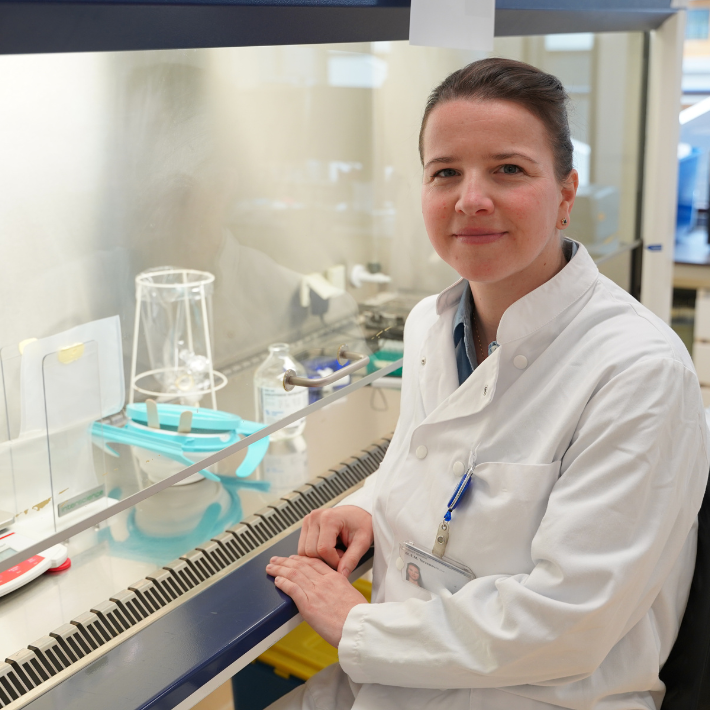Fecal transplantation helps patients get rid of resistant gut bacteria
Liz Terveer, medical microbiologist at LUMC and Chief of The Netherlands Donor Feces Bank (NDFB).
&width=710&height=710)
Resistant gut bacteria are bacteria that are resistant to some antibiotics. That means antibiotics don't do what they're supposed to do. "About 1 in 6 chronically ill patients suffer from this. The problem is often invisible and becomes a real silent killer when infections stop healing because antibiotics no longer help," said Liz Terveer, physician microbiologist at LUMC and head of the NDFB.
Fecal transplantation suppresses or even eliminates the abundance of resistant bacteria that patients possess. That protection is expected to last for the long term. Within the study, patients were approached to provide stool samples for research on bacteria up to three years after their fecal transplant. These showed that antibiotic resistance was still suppressed.
Biodiversity
At LUMC, research was conducted for three years to investigate the possibility of fecal transplantation in chronically ill people. Terveer: "We did this in all patients who had applied to our donor bank for a fecal transplant. We cultured their poop and mapped the personal community of bacteria. This gave us a complete picture of each patient's gut environment. Such an environment can be compared to a diseased ecosystem, in which we want to restore biodiversity by introducing new species. In this case, we introduced filtered stool from a donor through a probe into the patient."
The result was that after three weeks, patients carried no or greatly reduced levels of resistant bacteria. Terveer: "A nice and quick result. We have monitored some of the people for three years and we now know that the effect is also sustainable." The study was published in the scientific journal Genome Medicine.
Immunotherapy
Terveer continues her research by including other types of patients in fecal transplantation. "We started a study with the Netherlands Cancer Institute to see if the same treatment also works in patients with metastatic melanomas to enhance the effect of the immunotherapy they receive. The idea behind that is that a fecal transplant generates such a strong immune response that a patient's own immune system will start to clear the cancer cells much more adequately."
In search of donors
The long-term research means that LUMC is constantly looking for healthy donors. Terveer: "Until now, we have mainly been using poop from residents in Leiden, because the route between toilet and laboratory may not exceed 2 hours. Unless you can poop on command of course, in which case we'd love to see you drop by." If you are healthy, between 18 and 60 years old and you live or work in the Randstad, please sign up at www.ndfb.nl.
&width=710&height=710)